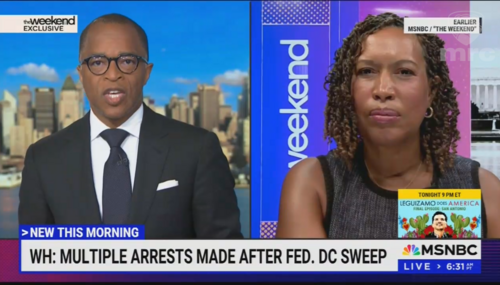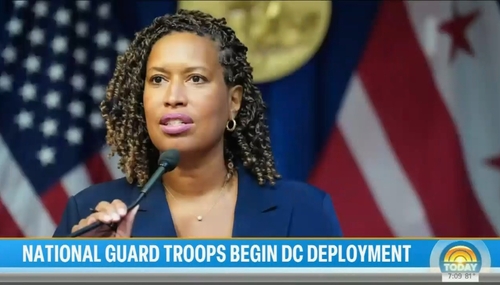Univision’s Jorge Ramos showed his pro-assisted suicide colors during a recent interview with a terminally-ill cancer patient in Puerto Rico who is seeking to end his life on his own terms.
During Ramos’ interview with cancer patient Miguel Carrasquillo and his mother Nilsa Centeno, Ramos failed to ask any critical or challenging questions in relation to the pro-assisted suicide position. Both Carrasquillo and Centeno based their support for assisted suicide on their understanding that “life is yours” and “we should decide how to die.”
MIGUEL CARRASQUILLO, CANCER PATIENT: Why not do it? Why not do it, if your life is yours?
NILSA CENTENO, MIGUEL’S MOTHER: People don’t realize that death is the surest thing we all have. And that we have to decide how to die.
In addition to failing to ask the assisted suicide advocates any questions challenging their premises, Ramos also failed to mention that Carrasquillo’s case is being championed by Compassion and Choices, an organization aiming to get state lawmakers to institute euthanasia, conveniently renamed “assisted dying”, in more U.S. states and territories, like Puerto Rico.
In addition to religious-based reasons against assisted suicide, there are many people and organizations who articulate their opposition on other grounds, such as the widow of the late Senator Ted Kennedy, who like Miguel Carrasquillo, also suffered from terminal brain cancer. Victoria Reggie Kennedy wrote the following in 2012, when she opposed a “Death with Dignity” measure in Massachusetts. The measure was narrowly defeated:
I can't help but feel we're sending the message that they're not even entitled to a chance. A chance to have more time with their loved ones. A chance to have more dinners and sing more songs. A chance for more kisses and more love. A chance to be surrounded by family or clergy or a doctor when the end does come. That seems cruel to me. And lonely. And sad.
The Disability Rights Education & Defense Fund has also weighed in saying that “assisted suicide is a deadly mix with our broken, profit-driven health care system” and that current safeguard standards in laws of states like Washington and Oregon are simply not enough to protect lives.
There’s also the American Association of People with Disabilities (AAPD), which notes their opposition to euthanasia is based on how it “devalues the lives of people with disabilities and would create a double standard in our society.”
None of these pro-life perspectives were brought up by Jorge Ramos. As the issue continues to be debated, we can only hope that next time he covers the subject in a more honest and comprehensive way.
Below is the transcript of the cited interview aired on Univision’s Al Punto on May 29:
UNIVISION
AL PUNTO
5/29/16
10:26:25 AM – 10:35:44 AM EST | 9 MIN 19 SEC
JORGE RAMOS, HOST, AL PUNTO: Miguel Carrasquillo has made the most difficult decision of his life: He wants to be allowed to die. Four years ago he was diagnosed with an incurable brain tumor. The pains, he assures us, are unbearable. But Puerto Rico has no laws that enable people like Miguel to receive help from doctors to die. Miguel and his mother, Nilsa Centeno, joined us via satellite from Puerto Rico to talk about his very difficult decision. Miguel Carrasquillo, Nilsa Centeno, both of you - thanks for talking with us this morning.
NILSA CENTENO AND MIGUEL CARRASQUILLO: [Both] Thank you.
JORGE RAMOS, HOST, AL PUNTO: Miguel, what was it that happened? You were diagnosed with a brain tumor. When was that? What do you remember about that?
MIGUEL CARRASQUILLO, CANCER PATIENT: Well look, the only thing I remember is that when I took a vacation trip to Puerto Rico, this... Being in the hotel gave me a strong headache, and it gave me a paralysis in the right hand, completely on the right side. At that time I was with my girlfriend, and she tells me: "When we get back to Chicago, we’ll go directly for a hospital in Chicago." That's how it went. We arrived at Chicago and went to the hospital. I did all relevant studies: CT Scan, MRI, biopsy, until they found he had a tumor called glioblastoma. That tumor had already spread all over my body and I did not know.
JORGE RAMOS, HOST, AL PUNTO: Nilsa, you said you saw your son suffer, you've seen him mourn, you've seen him fall, you've seen him collapse, and now are supporting... you support the option to help him die. Is this the hardest thing a mother can think, have to help her son die?
NILSA CENTENO, MOTHER OF MIGUEL: Ok. Uh, yeah... I've had him in my arms and I've helped him avoid major falls, and it is tough, it is tough, because I was the one who brought him to the world, and this decision to die with the dignity that he wants, and I think that if he wants it, then I will support him, because really the pain he feels, no one can imagine. It really is something very painful daily.
JORGE RAMOS, HOST, AL PUNTO: Miguel, I do not know how to ask this question, but... Are you ready to die?
MIGUEL CARRASQUILLO, CANCER PATIENT: Oh, yes, I'm ready now for a couple of months. What holds me back is the economic, the financial [aspects], because we do not have the money to move to a state, to be some time there, purchase, rent, everything that comes with that, you know? It's expensive.
JORGE RAMOS, HOST, AL PUNTO: And I would like to clarify, of course, for all the people that are watching, that Puerto Rico does not have assisted death, and as such, Miguel, you want to ask the help of doctors to die with dignity, to do that as you indicate, you would have to move to other states, such as Oregon, Washington, Montana, and Vermont. And what you're saying is you do not have the money to do that, right?
MIGUEL CARRASQUILLO, CANCER PATIENT: No, I do not have the money to do that. How I would love to have that, to have that money. How would I love that!
NILSA CENTENO, MOTHER OF MIGUEL: Nilsa, how did you come to the decision that you wanted to help your son die? You're Catholic, right? And when you talk to other Catholics, what has been the response from them, their reaction?
NILSA CENTENO, MOTHER OF MIGUEL: Well, on this journey I found people who believe and accept assisted dying. There are others who do not. But I ask a question: What about the Catholic Church? For years it has covered so many faults it has committed, and then tell me to me to have faith when I have knowledge that have done things, such as children who have been raped by priests, where the same Catholic church has silent. Then, to die with dignity for them is a sin. If humans no longer have an alternative, there is nothing to do, why can’t we take this into consideration?
JORGE RAMOS, HOST, AL PUNTO: Miguel, why are you talking to us? Why do you think that in these, those who could be your last moments, you want to make this something public? Why talk to the media? Why talk on TV? Why talk to me?
MIGUEL CARRASQUILLO, CANCER PATIENT: Look, for me to talk about it is a bit very difficult. People say that this is a taboo. I cannot find it as taboo. You know what a person feels in a wheelchair or bedridden, suffering pains? And why not have a choice as human to make the decision to take your life, if life is yours? Life is yours, and for you to live it as you want to live it.
JORGE RAMOS, HOST, AL PUNTO: What options do you have, then? You want to die with dignity, as you say. However, you do not have the resources to go to any of the four states where doctors could help you die with dignity. So what options are left?
MIGUEL CARRASQUILLO, CANCER PATIENT: I have no options, Jorge. Options, none. I've accomplished what ... I've achieved what I had to accomplish ... It's something very tough, Jorge, is something very tough. The life one leads, sitting, medicines, sitting, medicine, because it just makes you lose your will to eat, and it’s very sad, very sad.
...
JORGE RAMOS, HOST, AL PUNTO: Michael, as you said, is a taboo subject. Why Latino families we talk about this? What is your legacy?
MIGUEL CARRASQUILLO, CANCER PATIENT: We must talk about this because... Jorge, we must talk about this because this is not bad. Life is yours. Why do not do it? Why not, if your life is yours?
JORGE RAMOS, HOST, AL PUNTO: Do you feel that this is a political fight, Miguel? What is a fight you are fighting against politicians who do not want to authorize this type of law in Puerto Rico?
MIGUEL CARRASQUILLO, CANCER PATIENT: Mom, answer that question.
NILSA CENTENO, MOTHER OF MIGUEL: Yes, because here the personal interests of each politician go above what the people want or what the people wishes, and in addition the church often confuses the terms of euthanasia versus dignified death. Because death is worthy for a patient really you have nothing to look for, medically speaking. And Miguel wants that. But society is really not interested, but do not realize that death is the safest thing we all have and that we must decide how to die.
…






